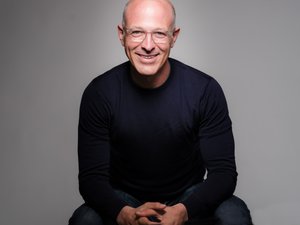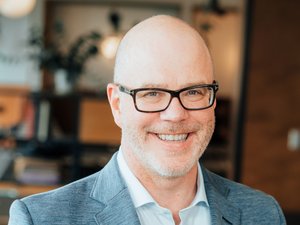
Kavi Misri was working 100-hour workweeks on health care investments, in an investment banking and corporate development role. But after seven years, it took its toll.
“I knew I needed help and I knew I was depressed, but I just didn’t have the energy to explain that sadness and that shame and that hurt to my therapist… and that’s even if I went or had the energy to go to my appointment,” he said, adding: “It became a marathon that I just couldn’t run anymore.”
Through his personal battle with mental health, Misri said, he realized the inefficiencies in care — and wanted to do something about it.
“I wanted to change the way that mental health was not just delivered, but the way that it was perceived,” he said, “and I leveraged my experience as an investor, as an entrepreneur, and most importantly, as a patient, to build Rose to where it is today.”
Misri founded Rose in 2018 and, in December 2019, launched its product: A patient engagement platform that connects mental health professionals and primary care physicians with patients, for early detection of depression and mood disorders. For patients, it’s a tool to track symptoms, and for doctors, it’s a resource to stay on top of patients between appointments.
Coronavirus has forced Rose to grow faster, Misri said, as depression and anxiety symptoms peak amid isolation and uncertainty sparked by the outbreak. So just four months after going live, its founder has made it free — opening it up to a wider user base as it looks to build recognition. That’s sustainable for now, he said, as the startup is raising a $1.5 million round that it’s looking to close in the next 60 days. That's doable even in today’s challenging fundraising environment, Misri said, because coronavirus is spurring demand from doctors and clinicians “who are scrambling to find a solution to connect to their patients.”
The raise follows a two-year bootstrapping period, Misri said. He’s raised $250,000 from friends and family to date, and invested another $150,000 of his own savings prior to this round. He’s also gotten additional support, through the Social Innovation Lab at Johns Hopkins University and Halcyon Incubator in Georgetown, as part of its current cohort.
The latest infusion would enable Rose’s team to build out new capabilities, including artificial intelligence to more seamlessly match patients to therapists. The platform already has remote patient monitoring capabilities, allowing clinicians to keep track of their patients between sessions, as well as symptom and trigger trackers that arm doctors with more data to better serve their patients. It’s also live this week with televisits, so doctors can use it as they virtually meet with patients through the pandemic.
Patients can also use Rose for coping resources, documenting their feelings and symptoms, guided breathing and meditation exercises, self-care tips and credible information about COVID-19. The product is HIPAA-compliant and billable through Medicare and other insurance companies. It’s attractive to payers, Misri said, because improving patient outcomes means fewer in-person visits to an ER or urgent care, which drive up the cost of care.
Misri plans to make money through a premium subscription model, priced for providers at $50 per month plus a license fee of about $5 per patient. Practices would use the service as a tool, get their patients to use it — free to them — and then bill insurance for reimbursement. It’s also backed by clinical evidence, following a study at Baltimore practice Key Point Health Services Inc. that showed the majority of patients who used Rose saw their depression improve. That trial — privately funded by Rose’s investors, run at an independent clinic and overseen by an Institutional Review Board, Misri said — has lead to an efficacy study the company plans to kick off later this year.
Rose — which stands for “recognition of speech and emotion” — has about 160 doctors and 300 patients using the product so far, with plans to grow that through a national campaign to physicians and health systems, Misri said. The company, with five full-time employees and 12 part-time staff, is now rolling out the product in five pilot sites at Johns Hopkins Medicine in Baltimore and Mercer Medicine in Georgia.




